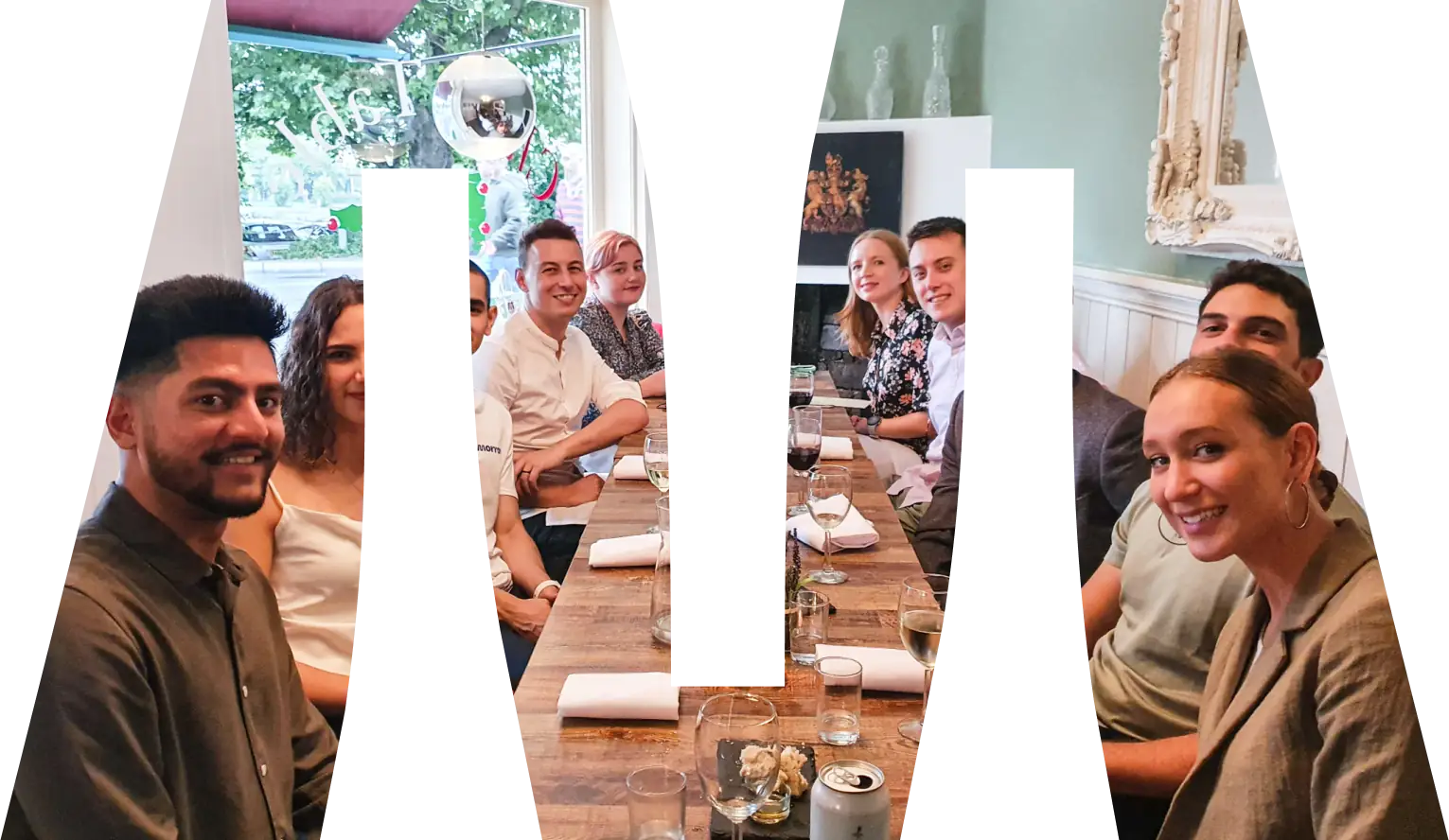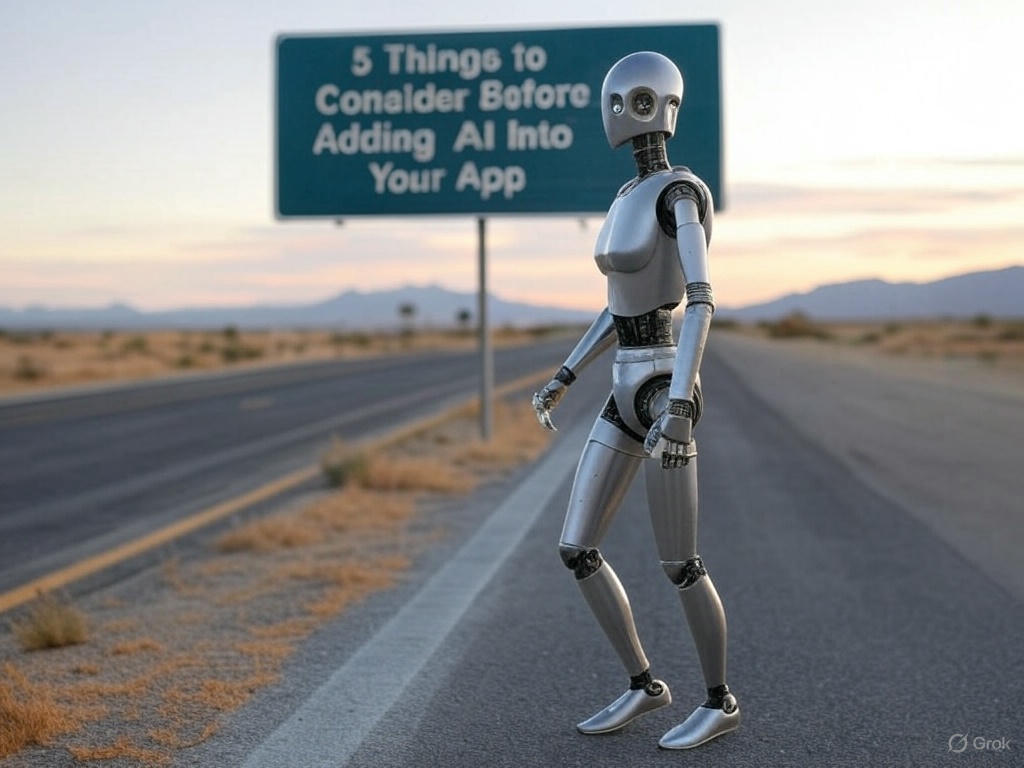Monday, April 24, 2023
-
5
min
Morrow's OpenAI Hackathon 2023 Summary
In the world of app development, innovation is vital. Staying ahead of the curve means constantly testing out new tools and technologies that can help us create even better, innovative and more engaging mobile applications for our clients.
One such tool that has been making waves in the industry is OpenAI's developer platform. If the name OpenAI sounds familiar it might be because you've heard of their products like ChatGPT or DALL•E.
Through the OpenAI developer platform, developers can use OpenAI's API giving them access to some of the most advanced language models. By incorporating the OpenAI API into their applications, developers can create more natural, conversational interfaces that can understand and respond to natural language input in a way that simulates human conversation.
Inspired by OpenAI's recent hackathon, we decided to put the OpenAI API to the test in our very own AI hackathon.
The Brief
Oliver Edis, the managing director of Morrow and AppLaunch, came up with a brief for the project and posted it in the dedicated Slack channel.
The brief was simple: build an app that utilises the OpenAI API in some way. The participants could do it in pairs or on their own in one work day - or 7 hours. They would then have to present their projects to the team and a winner would be chosen.
The apps would then be judged by Tom Riglar and Charles Killer, the founders of Moropo, who have a deep knowledge of, and expertise in, app development.
The judges asked OpenAI's ChatGPT to come up with the criteria for judging the apps:
- Technical Complexity
- Creativity and Innovation
- Impact and Practicality
- User Experience
- Presentation and Pitch
The team dug straight in, and the results were impressive.

Alex and Brian: PlanGenie
Developer Brian paired up with Alex, our project manager, and came up PlanGenie - an app that helps startups generate a comprehensive business plan via short-form information entered in text fields.
"The idea was to allow users to enter short-form information via text inputs and then use OpenAI to take this information and generate a thorough and well-written business plan."
Backend was built using Node.js.; frontend was built using React.
"For the OpenAI models, we found that there is a max limit for text, so we had to divide everything into sections and combine them at the end. Due to the time constraint, we were only able to capture some of the information that a business plan requires.
We used a sample. The way that it works is we take the user's information and add several prompts ahead of generating a text-based response. For example, we can take the user's top competitors and use a prompt to combine this with the target market alongside another prompt which contains good examples for the AI to cross-reference against before generating a response.OpenAI limits the number of requests per minute - this can result in errors. In this scenario, we made it wait until we generate the response.
If we had more time, we would refine the model, improve the UI and enable the user to download a pdf."

Petko: Mealinator
Developer Petko worked on his own and came up with Mealinator - a meal planner app.
"The app accepts the number of meals and the total calories that the user wants. It generates meals with the recipe, explaining how to prepare it. The user can regenerate a meal if its not to their liking. When regenerating, the user can also ask for ingredients to be included in the new meal.
The app works great when you dont know what to eat and want to stick to a certain caloric intake."

Costas H and Costas I - Custom-Trained AI Chat Bot
Morrow's senior developer Costas I paired up with our digital account manager, Costas H, to build Custom-Trained AI Chat Bot, that allows users to quickly find information in uploaded text documents.
"You can input any text documents (txt, doc, pdf). Upon clicking 'Train', the chatbot will 'read' your documents and become an instant expert. This allows you to ask the chatbot any question about the content of the document and it will answer for you. We tested this with Morrow's Company Handbook but it could be really useful for education and learning, gaming, and many other things."

Ivan - ChatGPT Multiple-Choice Quiz
Finally, the winning app, developed by Ivan, was a ChatGPT Multiple-Choice Quiz.
"The app can take any subject as input and generate a wide variety of multiple-choice quiz questions, with the option to choose from three levels of difficulty and the ability to vary the number of questions.
The app also provides detailed explanations for the correct answers. This makes it a valuable tool for both self-directed learning on any subject and just playing for fun!"

We followed the hackathon presentation with an online social, where the team participated in a quiz and a hat competition while the judges decided on who the winner was.
The winner, Ivan, was then announced.
Oliver, Morrow's managing director, said:
"This hackathon has been such a great opportunity for our team to take some time off of client work in order to explore new technologies as well as give them a chance to collaborate with colleagues they don't always get to work with. This hackaton has given the Morrow team a stronger understanding of how to build products that incorporate AI, from both a UX and technical perspective.
We all had a lot of fun and we're planning to return to these projects in a phase 2 hackathon later this year!"

If you enjoyed this blog, join our monthly newsletter "Defining the Morrow" by filling out a short form here.
Need help with your app? Book a free 30-minute consultation with our expert team here.



.jpg)









